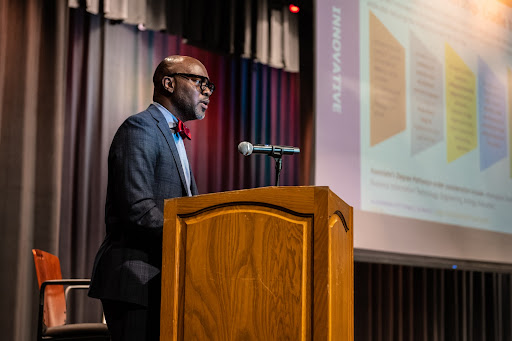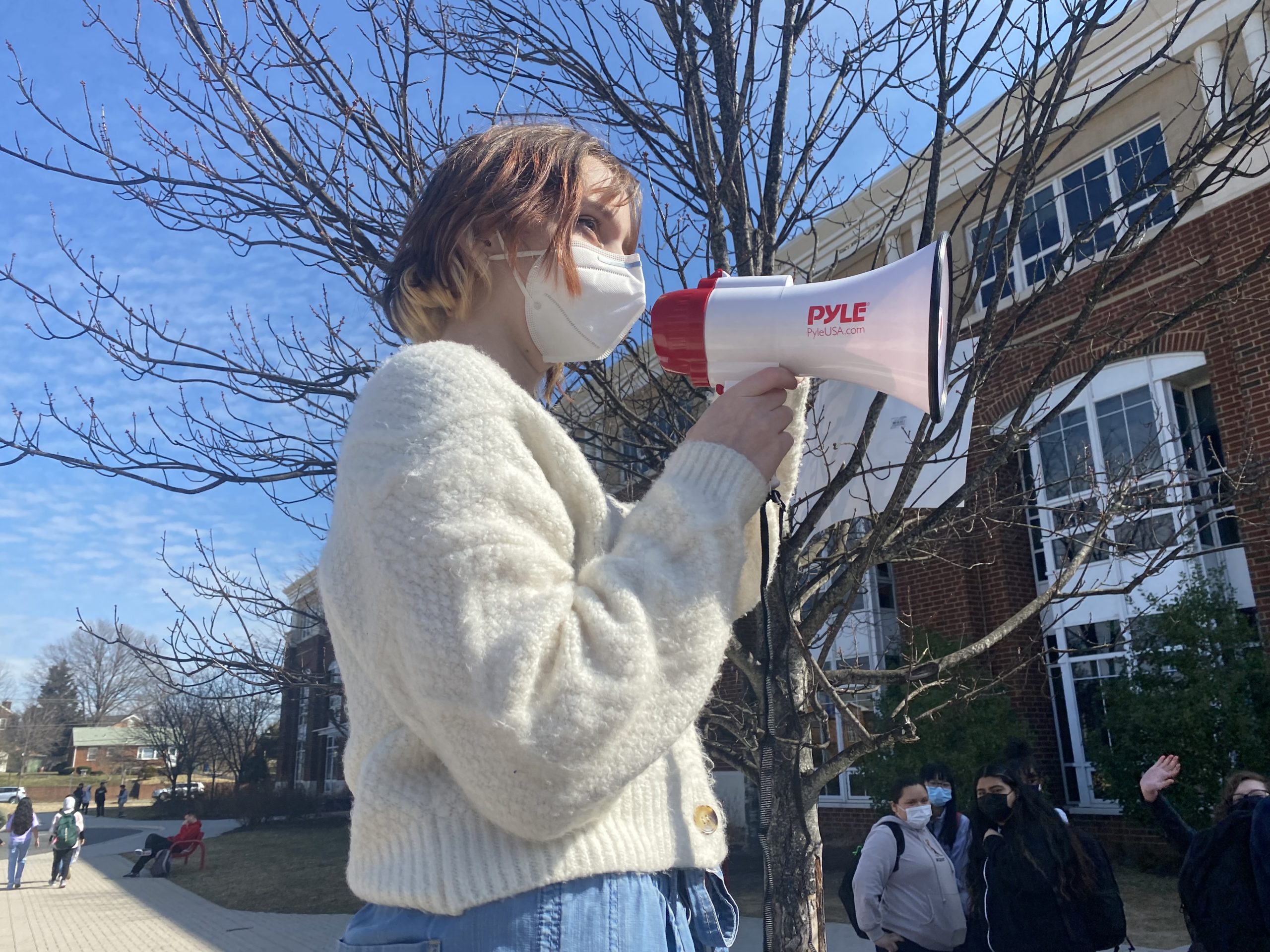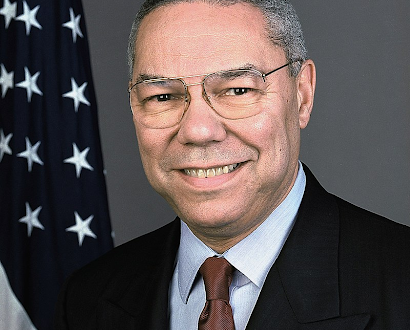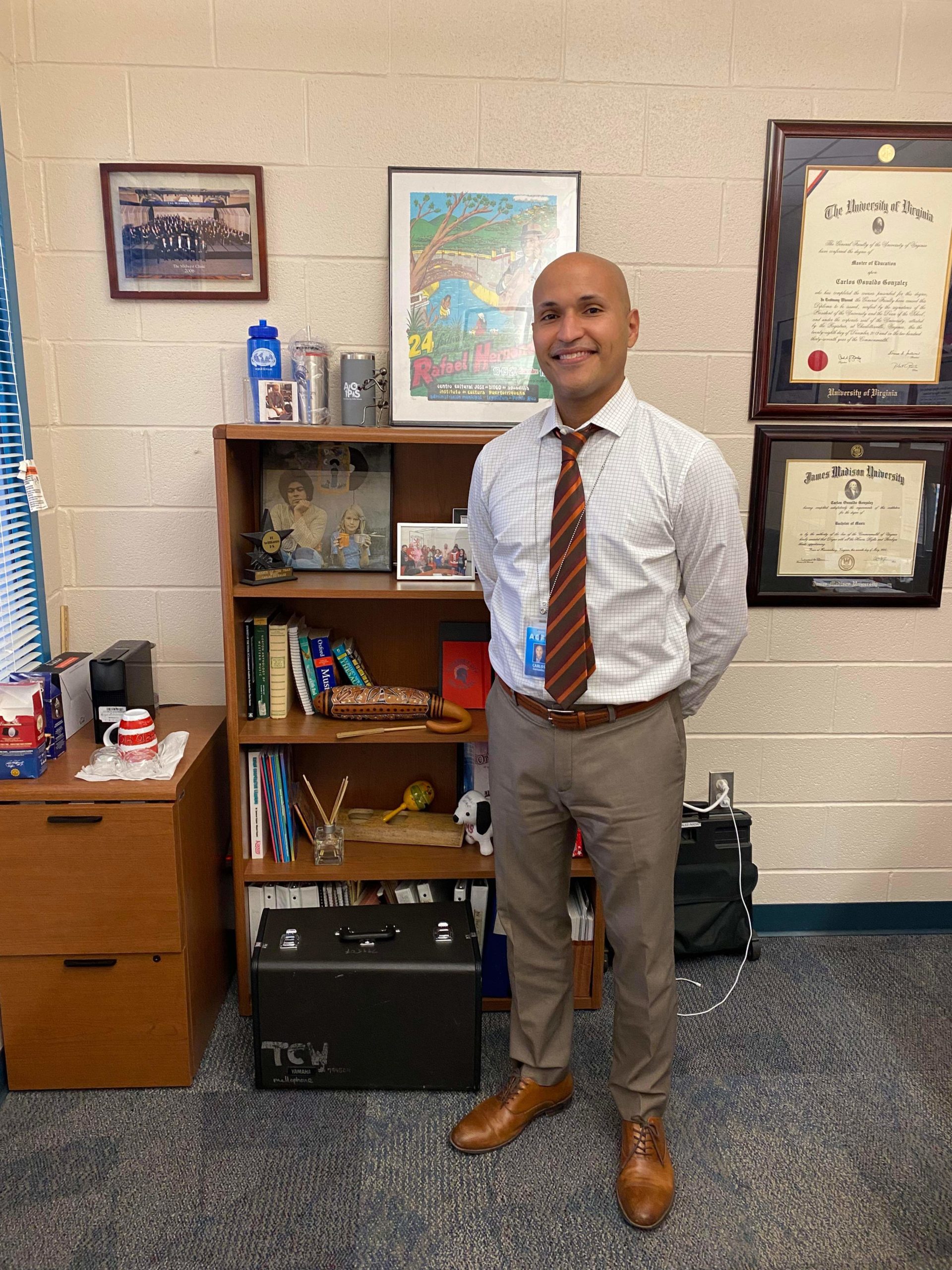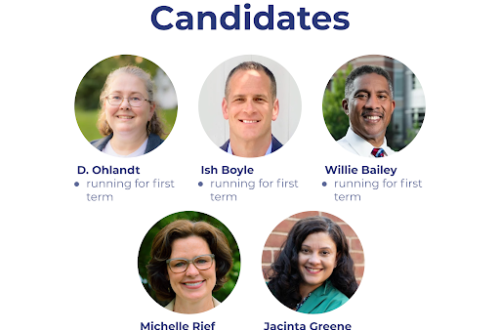Nikki Harris
Editor
The Alexandria schools are taking further steps to address ongoing equity issues, especially racial equity issues, said Superintendent Dr. Gregory Hutchings at what ACPS called its “first annual State of the Schools address.” Dr. Hutchings delivered the address on March 1 from the ACHS auditorium, with some students and others in attendance.
Hutchings touched on numerous aspects of the school system’s strategic plan, but the theme he repeatedly returned to was the ongoing effort not just in Alexandria, but nationwide, to help key populations reach educational parity. He spoke of milestones during the last fifty years to reach this goal, including the landmark report, “A Nation At Risk” that in 1983 described failures in U.S. public schools.
He lauded the accomplishment in 2019 of having all ACPS schools reach state accreditation, but made clear that was not sufficient, and that accountability was an ongoing process. ACPS’s Equity For All dashboard showed last school year that “our Hispanic, our economically disadvantaged, as well as our current English learners … and students with disabilities’ groups had the greatest rates of underrepresentation” on key academic metrics, he said.
The superintendent, who spoke and answered questions for over an hour on the topic, said the “pivotal parts” of the strategic plan were the “Areas of Focus.” Each area of focus had an emphasis on these key populations. Hutchings spoke first of the Early College area of focus, which is a new partnership that will enable 100 students, starting with ninth graders in the fall of 2024, to earn an associate’s degree from Northern Virginia Community College at the same time they complete their high school diploma.
The program, he said, “is intended to increase the enrollment of students of color in STEM and high-demand fields while also reducing the financial burden for our families.” Students who complete the program can then continue with George Mason University or Virginia Tech to earn a bachelor’s degree in various fields, including IT and engineering.
One of these key demographic groups – Hispanic males – is itself an area of focus, Dr. Hutchings said. He said that ACPS is now part of a national partnership that is a “warning system collaborative” to watch for early signs of academic struggle among Hispanic males, and to respond. This collaborative, the GRAD Partnership for Student Success, is new, according to Dr. Hutchings, and includes the Carnegie Foundation for the Advancement of Teaching, as well as Johns Hopkins University’s School of Education.
At the conclusion of the speech, students in attendance asked questions. One question was whether ACPS’s Early College initiative involved any out-of-state schools. Hutchings said that it currently did not, but that they were in touch with some Historically Black colleges and universities about future partnerships.
Another question was how ACPS administrators and teachers were ensuring that all four of ACHS’ campuses were incorporated into the equity program. Hutchings lauded the question, acknowledging that the challenge was real and responding that a campus administrator in each, all reporting to Principal Peter Balas, was an important part of the solution. “We’re trying to bring more synergy and collaboration between campuses because in the past, they really have worked in silos.”
Photo courtesy Susan Hale Thomas

